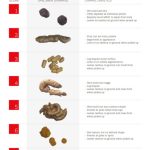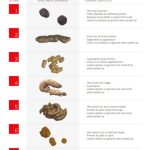As a new puppy parent, there’s nothing more worrisome than seeing your little bundle of joy suffer from diarrhea. It’s a common issue that can be alarming, especially when you’re not sure what’s causing it or how to stop it.
Diarrhea in 5-Month-Old Puppies: Causes and Concerns
Diarrhea is one of the most common health issues affecting puppies, including those as young as 5 months old. As a responsible dog owner, it’s essential to understand what could be causing this unpleasant condition and how to address it effectively.
Why Diarrhea Matters
Diarrhea can lead to dehydration, electrolyte imbalances, and even potentially life-threatening complications if left untreated or managed poorly. In young puppies like those at the 5-month mark, diarrhea can be especially concerning due to their developing immune system and vulnerable digestive tract.
The Causes of Diarrhea in 5-Month-Old Puppies
One of the most significant causes of diarrhea in puppies is dietary changes or sensitivities. If your puppy has recently been introduced to new foods, treats, or snacks, it could be triggering an adverse reaction in their digestive system.
This can include common culprits like:
- New puppy food
- Sweet treats
- Treats containing onions or garlic
- Table scraps
In the next section, we’ll dive deeper into the potential causes of diarrhea in 5-month-old puppies and explore the most effective ways to address this issue. But first, let’s take a closer look at the warning signs and symptoms you should watch out for.
In our previous section, we discussed the importance of addressing diarrhea in 5-month-old puppies and explored some common causes like dietary changes or sensitivities. Now, let’s dive deeper into the warning signs and symptoms you should watch out for to determine if your puppy is experiencing a gastrointestinal upset.
Symptoms of Diarrhea in 5-Month-Old Puppies
Diarrhea can manifest differently in puppies, depending on the underlying cause. However, there are some common signs and symptoms you should look out for:
- Frequent stools or loose stools
- Blood in the stool (which may appear as a reddish-brown color)
- A change in appetite or interest in eating
- A decrease in energy levels or lethargy
- Whining, whimpering, or acting stressed
- Refusal to eat treats or play
If you notice any of these symptoms in your puppy, it’s essential to take action promptly. Delaying treatment can lead to more severe complications and even dehydration.
When to Seek Veterinary Attention
While it’s natural for puppies to experience occasional stomach upset, diarrhea that persists or worsens over time requires veterinary attention. Pay attention to the following situations:
- If your puppy experiences repeated episodes of diarrhea within a short period (e.g., two to three times within a day)
- If diarrhea is accompanied by vomiting
- If your puppy shows signs of dehydration, such as dry mouth, sunken eyes, or lack of interest in eating
- If your puppy’s stool contains blood or a significant amount of mucus
Don’t hesitate to consult with your veterinarian if you’re concerned about your puppy’s health. They can help rule out underlying conditions and provide guidance on the best course of treatment.
Next Steps: Prevention and Treatment
In our next section, we’ll explore effective strategies for preventing diarrhea in puppies and discuss treatment options when symptoms arise. We’ll also cover how to maintain a healthy digestive system and reduce the risk of gastrointestinal upset.
For more information on puppy digestive issues, visit the American Kennel Club’s expert advice page To learn more about diarrhea in puppies and how to manage it, check out this article from Veterinary PartnersGet Expert Advice on Diarrhea in Puppies
Our experts are here to help you navigate this critical situation. Don’t hesitate to reach out.
Get expert consultationIn this final section, we’ll summarize the key points covered so far and provide some final insights to help you better understand and address diarrhea in your 5-month-old puppy.
Key Takeaways
We’ve explored the importance of understanding the causes of diarrhea in young puppies like those at the 5-month mark. We’ve also discussed how dietary changes or sensitivities can trigger an adverse reaction, leading to loose stools and potentially life-threatening complications if left untreated.
The key takeaways from this blog post are:
- Dietary changes or sensitivities are common causes of diarrhea in puppies
- New puppy food, sweet treats, onion- or garlic-containing treats, and table scraps can all trigger adverse reactions
- It’s essential to monitor your puppy’s symptoms and seek veterinary care if diarrhea persists or is accompanied by other concerning signs like vomiting, lethargy, or a decrease in appetite
Final Insights
In conclusion, as a responsible dog owner, it’s crucial to understand the causes of diarrhea in your 5-month-old puppy and take proactive steps to address this issue. By recognizing the warning signs and symptoms, you can provide the best possible care for your furry friend.
Remember, if you’re concerned about your puppy’s health or suspect they may have developed a more serious condition, always consult with your veterinarian. They’ll be able to provide personalized guidance and support to help your puppy recover and thrive.
Conclusion
As we’ve seen throughout this blog post, diarrhea in 5-month-old puppies can be a concerning issue that requires prompt attention and effective management. By understanding the causes of this condition and taking proactive steps to address it, you’ll be well on your way to providing the best possible care for your young pup.
With the right guidance and support from your veterinarian, your puppy will be back to their normal playful self in no time. So, don’t delay – take action today to ensure your furry friend stays happy, healthy, and diarrhea-free!
Read the Case Study McRoy Aerospace on Page 332 and Answer Questions 4 and 5 on Page 333: Are you a fan of aerospace engineering? Dive into this fascinating case study to learn more about the innovative solutions being implemented in the industry.
The Ultimate Guide to Intermittent Fasting for Women: Are you ready to revolutionize your approach to weight loss and overall health? This comprehensive guide provides expert advice and real-life examples of how intermittent fasting can be a game-changer for women.




